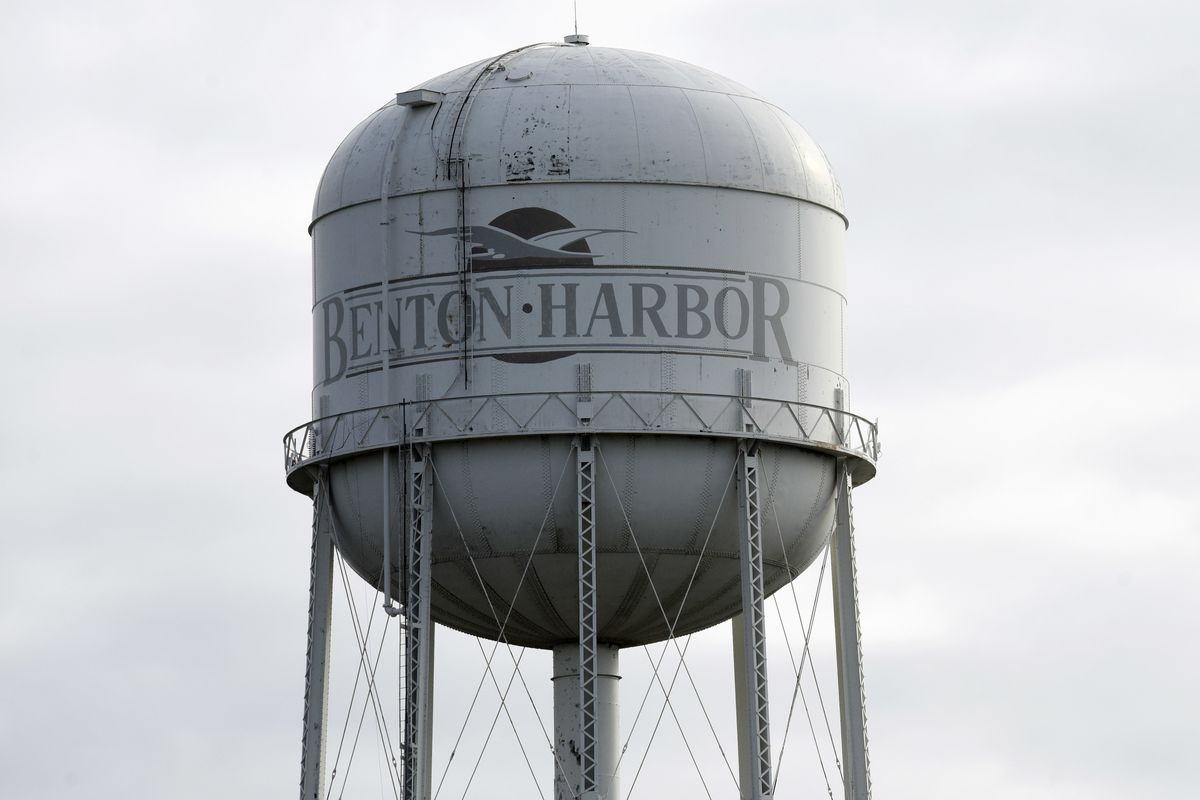Groups seek federal help with lead in Michigan city’s water

Advocacy groups are urging the Biden administration to help provide safe drinking water in Benton Harbor, a low-income, predominantly Black city in southwestern Michigan where tests repeatedly have shown excessive lead levels in the water supply.
In a petition filed Thursday with the U.S. Environmental Protection Agency, about 20 organizations said local and state officials have not responded adequately or quickly enough since the contamination was discovered three years ago.
“It’s urgent that the EPA intervene to give this community access to water that won’t harm our health, especially our children’s health,” said the Rev. Edward Pinkney, president of the Benton Harbor Community Water Council.
EPA spokesman Tim Carroll said Friday that the agency was “carefully considering the issues and concerns” raised in the petition.
“We are closely monitoring lead-related health issues in Benton Harbor,” Carroll said, adding that the city was among 10 communities that participated in discussions with the EPA as it reviews changes to federal lead and copper regulations made by the Trump administration.
The petition was filed one day after Michigan Gov. Gretchen Whitmer called for spending $20 million in Benton Harbor to replace nearly 6,000 service lines — most suspected of containing lead — within five years.
The funding would be part of a proposed $200 million expansion of a $500 million initiative Whitmer announced last year to upgrade water and sewer infrastructure in a state where Flint, another mostly Black city, became a nationwide symbol of lead-tainted water in 2014.
The Michigan Department of Environment, Great Lakes and Energy “has been working diligently” with Benton Harbor to reduce lead contamination, spokesman Scott Dean said Friday. Free water filters have been available there since 2019, he said.
The city installed technology two years ago to reduce pipe corrosion, he said, and the state helped Benton Harbor obtain $5.6 million in EPA funding to improve the corrosion controls.
At the state’s request, Benton Harbor has doubled the number of homes where water is sampled and is testing them more frequently, Dean said.
Pinkney praised Whitmer for seeking the additional funding but said Benton Harbor faces a “dire emergency.”
Repeated measurements in recent years have detected lead levels well above 15 parts per billion, the federal threshold for taking action, according to the petition.
It says city and state actions, including the corrosion control measures, have been poorly implemented and ineffective. Too few local residents are aware of the water problems, it says, and information about how to obtain and use the free filters is scarce.
The petition asks the EPA for a variety of steps: Emergency notification of Benton Harbor customers not to drink unfiltered water from the municipal system; free alternative drinking water sources, such as bottled water or mobile tanks; and home delivery of filters with instruction on their use.
“It’s a simple matter of law and justice that the people of Benton Harbor deserve safe water, regardless of their race or income,” said Nick Leonard, executive director of the Great Lakes Environmental Law Center.
The petition argues that Benton Harbor’s situation could be worse than that of Clarksburg, West Virginia, where the EPA in July issued an emergency order because of high lead content in the water.
“We note that Clarksburg has a 92% white population, while Benton Harbor has a population of about 90% people of color,” the petition says.